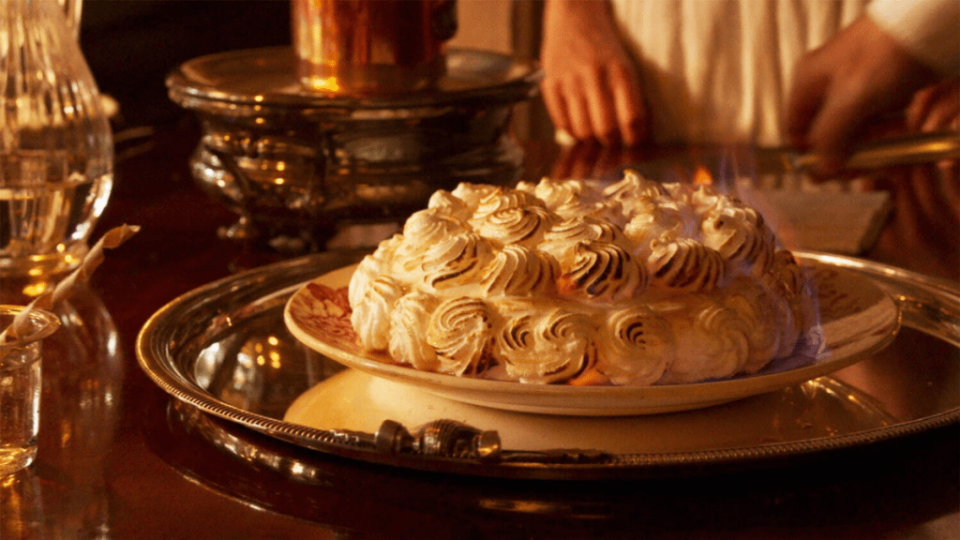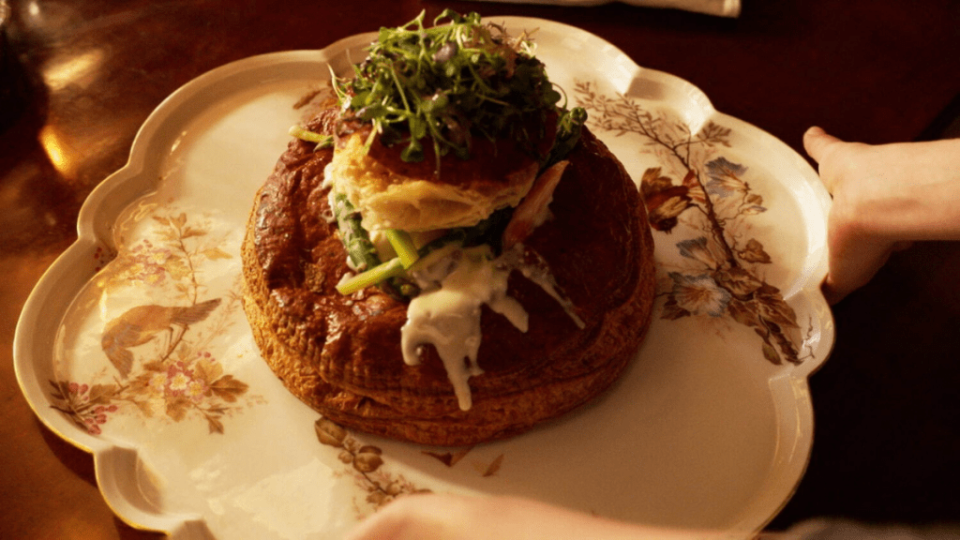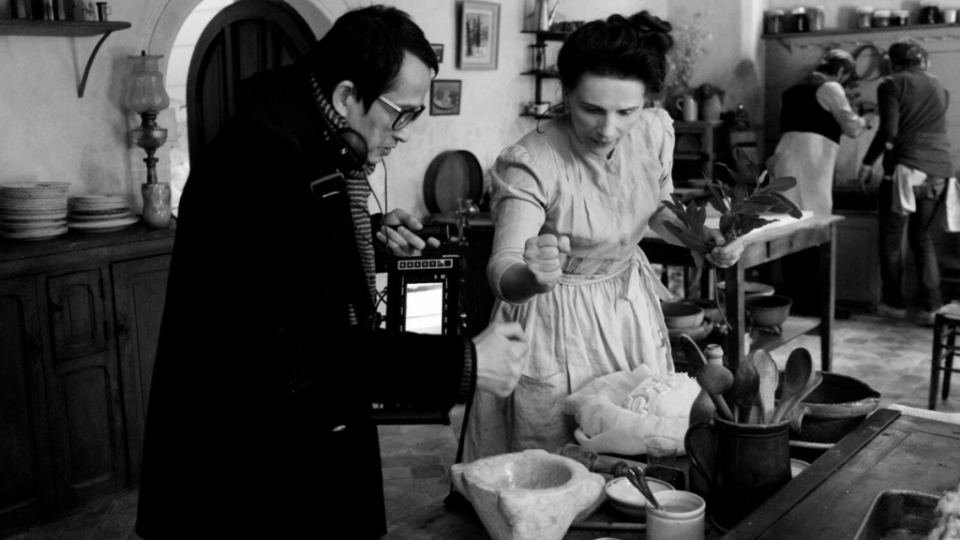‘The Taste of Things’ Director Explains Why Food and Lust Are 2 ‘Main Sources of Sensuality’
- Oops!Something went wrong.Please try again later.
- Oops!Something went wrong.Please try again later.
- Oops!Something went wrong.Please try again later.
- Oops!Something went wrong.Please try again later.
- Oops!Something went wrong.Please try again later.
For several decades, the acclaimed writer-director Tran Anh Hung wanted to make a movie about the creativity and desire involved in preparing and enjoying food. And about how those feelings of discovery resonate with love and lust. “In our lives, food and sex are the two main sources of sensuality,” Tran said to TheWrap, “and I was very intrigued to make a movie about that.”
It’s not a completely new idea, but the Vietnamese-born French filmmaker has created perhaps the most rapturous expression of cuisine-as-metaphor ever on film. “The Taste of Things,” his Cannes Best Director winner starring Juliette Binoche as a gifted cook and Benoît Magimel as a gourmet in 1880s rural France. The film opened briefly in December for awards consideration but is going into wider release this week.
Based on a few pages from a 1924 novel by Swiss historian Marcel Rouff, the movie is completely Hung’s own creation, instantly familiar to fans of his exceptional Vietnam trilogy: 1993’s “The Scent of Green Papaya,” set in Vietnam but filmed entirely on soundstages in Paris, 1995’s “Cyclo,” and 2000’s “The Vertical Rays of the Sun.” Those projects starred actress Tran Nu Yen Khe, Tran’s wife, who served as costume designer in this new film, which is dedicated to her.
With his classical style, the director favors a specific style of moviemaking. Working with French cinematographer Jonathan Ricquebourg, Tran adores visual storytelling without a reliance on dialogue, languorous long takes (including one for the ages as the film’s concluding shot), natural golden sunlight and candlelight, gorgeous close-ups and two-shots, and the calming serenity of a quiet evening sipping wine in the garden.
But even by Tran’s own standards, the film’s opening 30 minutes stands as a singular achievement. The sequence features Binoche’s character preparing an epic meal for guests in her kitchen, replete with fish, beef, sauces, breads, vegetables doused in white wine, plus an ice cream dessert which seems too good to be true: Baked Alaska (called “Norwegian Omelette” in the movie). The invention of which, in 1867, is historically and scientifically accurate, once it was discovered that meringue was an excellent insulation for frozen custard. It’s one of several clever nods to modernity in the film.
The scene, dominating the whole first quarter of the film, is one of the great, mouth-watering foodie tableaus in movies, which has elicited gasps from film festival audiences since the movie’s Cannes premiere last May, where Tran won Best Director.



“That sequence was impossible to write in the script,” said Tran. “But after working with (French chef) Pierre Gagnaire on the entire cuisine, I realized that I would write it as just a series of directions to the actors and crew. It was almost like writing directions for a car chase in an action film. So I’d give my notes to (the actors) the night before and then we would rehearse a little bit. But mostly it was all done on the day of filming. I like to discover things with the actors on the set.”
Within the scene is one Easter Egg, so to speak, a nod to Tran’s Vietnamese roots. “Normally in France, the chefs burn the skin off chicken legs, but I asked if we could do it by boiling in hot water and peeling the skin off. That is a Vietnamese technique. So maybe people might think that at the end of the 19th century in France, they did it this way. But no, that was just my little addition for the film.”
Collaborating with Binoche for the first time, Tran wanted the Oscar-winning actress to smile frequently during the opening sequence. That wasn’t so easy for Binoche, recalled Tran, while she was in the thick of the elaborate cooking choreography and trying not to burn herself on the stove and oven.
“For Juliette, it was an effort to smile in that scene,” he said. He needed to explain to the actress what his intentions were. “Cuisine is her character’s art and she really enjoys doing what she’s doing. For me, when I’m making a movie I don’t feel any suffering. I just love doing it. And so I wanted the audience to understand the pure pleasure and joy that this character experiences at her craft.”

During his pre-production conversations with Binoche, Tran had a bigger subject to discuss with his star. After a few other French actors had committed to the lead male role, only to later depart the film, Tran nervously asked Binoche about casting Magimel. The veteran actor, best known for Michael Haneke’s “The Piano Teacher,” had been in a five-year relationship with Binoche and the two had a daughter in 1999, before a long estrangement.
“I was anxious about this because Benoît was in my mind from the beginning,” said Tran. “I asked Juliette and she said it wasn’t a good idea because Benoît would refuse the part, for sure. So I trusted her about that. But at the end of the casting process, I decided to go to him. I showed him the script and he read it overnight and he said, ‘I’m in.’”
Tran described the filming experience with Binoche and Magimel as “marvelous and very professional.” Binoche has also said that, despite their shared history, with all of its “ups and downs,” working with Magimel on the film signaled how “reconciliation is always possible” and considers the movie “a wonderful gift for our child.” (Their daughter Hana Magimel cried when she viewed the film in Paris.)
For Tran, as a director of actors, his method never relied on unlocking some under-the-surface tension between Binoche and Magimel.
“There are two kinds of filmmakers,” he said. “One kind really tries to get what they call ‘the truth’ out of the actors. But that’s not me. In my case, I just need their expressivity. I don’t need the actors in a situation where they tap into deep memories or anything like that. So I never spoke to Juliette and Benoît about their relationship. Their expressiveness on screen – that’s all I needed. It was more than good enough for me.”
Now 61 years old, Tran admitted that “The Taste of Things” would not have been possible as a project earlier in his career.
“Twenty years ago, I would not have been able to make a movie about (a celebration) of martial love,” he said with a smile. “I had not lived enough then. I’ve been with my life since she was 17, it’s quite a long time. So this a story about the autumn of life, which I am in, as well. For me, I’m quite enjoying this moment.”
The post ‘The Taste of Things’ Director Explains Why Food and Lust Are 2 ‘Main Sources of Sensuality’ appeared first on TheWrap.

